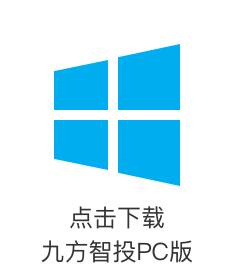2021 results slightly miss our forecast
Jiangsu Olive Sensors High-Tech (Olive Sensors) announced its 2021 results: Revenue rose 5.4% YoY to about Rmb857mn and net profit attributable to shareholders declined 5.6% YoY to Rmb98.41mn. In 4Q21, revenue rose 4.8% YoY to around Rmb293mn, up 50.4% QoQ; attributable net profit dropped 20.6% YoY to Rmb28.02mn, up 30.6% QoQ. The results slightly missed our forecast, mainly due to rising raw material prices, chip shortages, and increased R&D investment.
Trends to watch
Revenue increased steadily; several negatives weighed on profit. In 2021, the firm's revenue rose 5.4% YoY to around Rmb857mn. Specifically, revenue from sensors and accessories rose 6.7% YoY to about Rmb208mn, revenue from fuel system accessories increased 5.6% YoY to around Rmb482mn, while revenue from auto interior parts declined 19.6% YoY to Rmb83.63mn; revenue from alternative-fuel vehicle (AFV) components rose 26.9% YoY to Rmb28.16mn. In 2021, the firm's gross margin (GM) slid 1.3ppt YoY to 24.8%, and net margin dropped 1.3ppt YoY to 11.5%, mainly dragged by higher raw material prices and chip shortages. Its G&A expense ratio rose 0.6ppt YoY to 5.7% in 2021, due to increased labor costs after acquiring two subsidiaries, Changzhou Huaxuan (the resolver division of Olive Sensors) and Kunshan Aoliwei. We believe the firm has ample orders on hand for AFV sensors, motor insulating rings, and voltage-controlled filter components. We expect its sales volume to continue to increase in 2022, boosting growth of its revenue and profit.
Branching out to internet of vehicles (IoV). In August 2021, the company raised Rmb350mn via the issuance of additional stocks to build an IoV system for commercial vehicles. On April 7, 2022, it announced plans to branch out into automotive electronics products and smart vehicle-mounted units, expanding its presence in the IoV sector. Olive Sensors has won orders for IoV products for commercial vehicles, and is exploring the market. We believe the IoV business will serve as a new growth driver for the company.
Resolvers and MEMS pressure sensors to continue benefiting from transition towards smart and electric vehicles; import substitution underway. We think along with the shift towards electric vehicles, automotive electrical systems will need extra sensors, and batteries and other components may impose higher performance requirements on sensors. In addition, the transition to smart vehicles may boost demand for sensors used in smart chassis, brakes, and thermal management systems. As such, we think the market will need a larger number of high-performance automotive sensors, which will likely boost the industry expansion. Resolvers and MEMS pressure sensors are core electronic components in AFVs; Olive Sensors obtained related core technologies by acquiring Changzhou Huaxuan and purchasing a stake of Long Way Technology, creating synergies between its existing businesses and subsidiaries. We expect the firm to realize import substitution by leveraging its competence in self-sufficiency, clients and services.
Financials and valuation
Given rising raw material prices and chip shortages, we lower our 2022 and 2023 net profit forecasts by 19.5% and 18.3% to Rmb162mn and Rmb235mn. The stock is trading at 26.9x 2022e and 18.6x 2023e P/E. We maintain OUTPERFORM, and lower our target price 14.3% to Rmb12.00. Our TP implies 36.6x 2022e and 25.2x 2023e P/E, offering 35.9% upside.
Risks
Disappointing development of IoV and new businesses; sharp increase in raw material prices.













